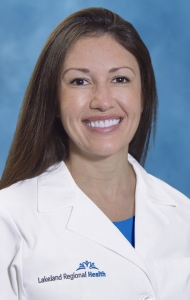By VANESSA PROWLER, MD

There are a number of reproductive factors that influence a woman’s risk of developing breast cancer, including start of menstruation, number of pregnancies, age at first birth, use of birth control pills, fertility treatments, age of menopause, hormone replacement therapy (HRT), and time spent breastfeeding.
Numerous studies have shown that breastfeeding for 1 year or longer decreases the risk of both pre- and postmenopausal breast cancer. In a study by the Collaborative Group on Hormonal Factors in Breast Cancer that evaluated 47 epidemiological studies across 30 countries comparing women who breastfed with those who did not, the relative risk of breast cancer decreased by 4.3% when women breastfed for 12 months.1 The hormonal landscape is also different when women breastfeed. Levels of estrogen, the hormone that drives the majority of breast cancers, is reduced in those who breastfeed. In a 2002 analysis, luminal (estrogen and/or progesterone positive, HER2/neu negative cancers) and triple negative subtypes were shown to be decreased in women who breastfed.2 Damaged cells within the breast may also be shed during breastfeeding.
Breastfeeding imparts antibodies that help strengthen your baby’s immune system; protects against developing gastrointestinal problems, such as inflammatory bowel disease and necrotizing enterocolitis; and decreases incidence of ear infections, asthma and other respiratory disorders, leukemia, sudden infant death syndrome (SIDS), obesity and diabetes. Breastfeeding confers additional benefits to the mother, such as faster shrinkage of the size of the uterus after childbirth, less bleeding after delivery and during the postpartum period, decreased incidence of postpartum depression, higher rates of weight loss and decreased chance of developing diabetes mellitus type 2, and breastfeeding saves money.
Breastfeeding decreases the risk of ovarian cancer and may decrease the risk of endometrial cancer. While breastfeeding, ovulation does not occur. The less a woman ovulates, the lower her exposure to estrogen, which decreases her chance of developing ovarian cancer.
If you have questions about nursing, consult one of our certified lactation consultants: Carla Ann Parry, RN, BSN, IBCLC, 863.284.1685 or Pediatrician Nicole Hinds, MD, 863.284.5000.
Sources: Lancet. 2002; http://doi.org/10.1016/S0140-6736(02)09454-0;
Cancer Treatment Reviews. 2016; http://doi.org/10.1016/j.ctrv.2016.07.006
About the Author
Vanessa Prowler, MD, is a Breast Surgeon with the nationally recognized Hollis Cancer Center. Learn more about the Breast Cancer Program or call 863.603.6565 to make an appointment with Dr. Prowler.
